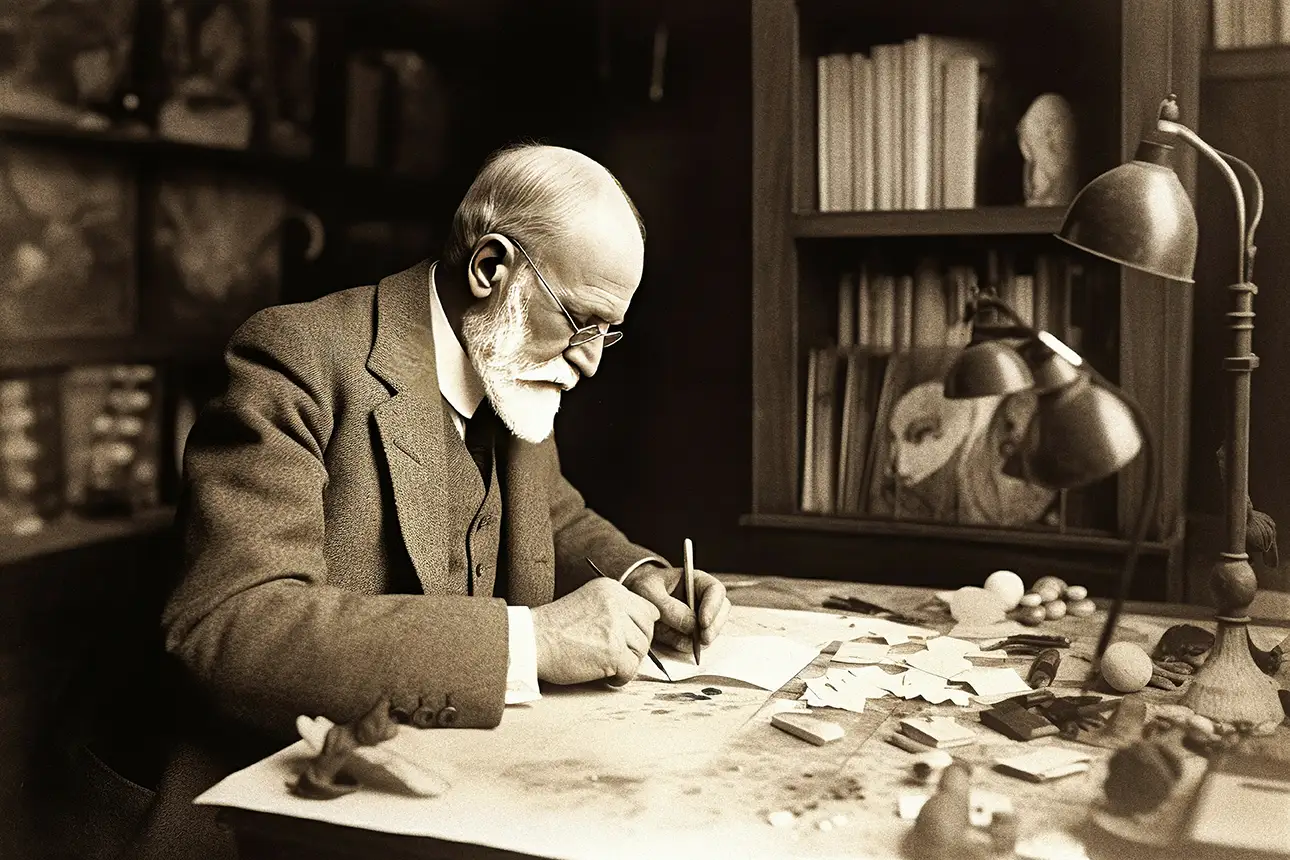Understanding Behavior: A Guide to Key Psychological Theories
In the ever-evolving field of psychology, theories have emerged that explain the complex fabric of human behavior. From the depths of our unconscious desires to observable behaviors cued by our environment, psychology provides a window into the myriad of influences that shape our actions and behaviors.
This insight ranges from Sigmund Freud’s psychoanalytic ideas (keyword) to the psycho-behavioral insights of Aaron T.J. Beck and Albert Ellis. At the foundation, we find Freud’s psychoanalytic theory that our unconscious mind holds the keys to understanding behavior, often tracing it back to childhood experiences.

Freud’s Psychoanalytic Theory suggests that unconscious motivations and childhood experiences significantly influence behavior. For example, a person might fear water due to a forgotten childhood trauma involving a swimming pool.
Behaviorism, emphasized by John B. Watson and B.F. Skinner, highlights the role of environmental factors in shaping behavior, suggesting that all behaviors are acquired through conditioning. For instance, a child learns to say “please” because they get a cookie every time they use the word, reinforcing polite behavior.
Behaviorism, emphasized by John B. Watson and B.F. Skinner, highlights the role of environmental factors in shaping behavior, suggesting that all behaviors are acquired through conditioning. For instance, a child learns to say “please” because they get a cookie every time they use the word, reinforcing polite behavior.
Humanistic Psychology, championed by Carl Rogers and Abraham Maslow, focuses on individual potential and stresses the importance of growth and self-actualization. A therapist might focus on their client’s growth potential and emphasize their strengths and positive traits.
Jean Piaget’s Cognitive Development Theory describes how children’s thinking processes change as they mature. For example, a 5-year-old child begins to understand that even if you change the shape of clay, the amount remains the same (conservation).
Lev Vygotsky’s Sociocultural Theory (keyword) highlights the critical influence of social interaction and culture on cognitive development. A child learns to solve puzzles by watching their older sibling and receiving encouragement and tips.
Howard Gardner’s Theory of Multiple Intelligences argues that intelligence is not a single entity but a variety of distinct abilities. Gardner identifies multiple types of intelligence, such as linguistic, musical, spatial, and interpersonal. This theory suggests that people have unique strengths across different areas. By recognizing these diverse intelligences, Gardner’s approach encourages personalized learning and teaching methods that cater to individual talents and capabilities.
Cognitive Behavioral Theory, developed by Aaron T. Beck and Albert Ellis, combines cognitive and behavioral approaches to address dysfunctional emotions, behaviors, and cognitions through goal-oriented processes. For example, someone who fears dogs learns to gradually reduce their fear by changing their thoughts about dogs and slowly getting used to being around them.
Attachment Theory, suggested by John Bowlby and Mary Ainsworth, proposes that early relationships with caregivers affect relationships throughout life. A securely attached child feels safe to explore their environment while knowing they can return to their caregiver for comfort.
Albert Bandura’s Social Learning Theory proposes that new behaviors can be acquired by observing and imitating others. For example, teenagers might learn to smoke after observing their friends smoke and receiving their approval.
Maslow’s Hierarchy of Needs is a motivational theory comprising a five-tier human needs model, from physiological to self-actualization. Someone might volunteer to help others (self-actualization) only after ensuring their basic needs and safety.
Erikson’s Stages of Psychosocial Development (keyword), proposed by Erik Erikson, suggests that individuals go through eight developmental stages, each involving a specific crisis that must be resolved. A teenager develops a sense of self-identity by exploring different values and beliefs.
Additional Theories in Psychology
Robert Sternberg’s Triarchic Theory of Intelligence suggests that human intelligence comprises analytical, creative, and practical dimensions.
Albert Bandura’s self-efficacy theory focuses on believing in one’s ability to succeed in specific situations or accomplish a task.
Evolutionary Psychology explores how evolutionary principles help explain the structure and function of the human mind.
Leon Festinger’s Cognitive Dissonance Theory suggests that we have an inner drive to hold all our attitudes and beliefs in harmony and avoid dissonance.
Transactional Analysis by Eric Berne is a psychoanalytic theory and therapy method for analyzing social transactions to understand behavior.
Self-determination theory by Edward Deci and Richard Ryan supports our natural tendencies to behave effectively and healthily.
The Bystander Effect, a theory by John Darley and Bibb Latané, suggests that the presence of others can significantly influence an individual’s decision to help a victim. This concept plays a crucial role in understanding and addressing societal behavior and dynamics.
Heuristic Processing Theory explains how people make judgments and decisions using mental shortcuts.
The dual-process Theory by Daniel Kahneman, which distinguishes between two types of thinking and slow, is a significant concept in understanding decision-making processes. It helps us appreciate the role of these two thinking modes in our cognitive processes.
Conclusion: A Comprehensive Understanding of Human Behavior
These psychological theories have significantly influenced understanding in various domains, including cognitive development, social interaction, personality, motivation, and mental health, shaping contemporary psychological thought and practice.




